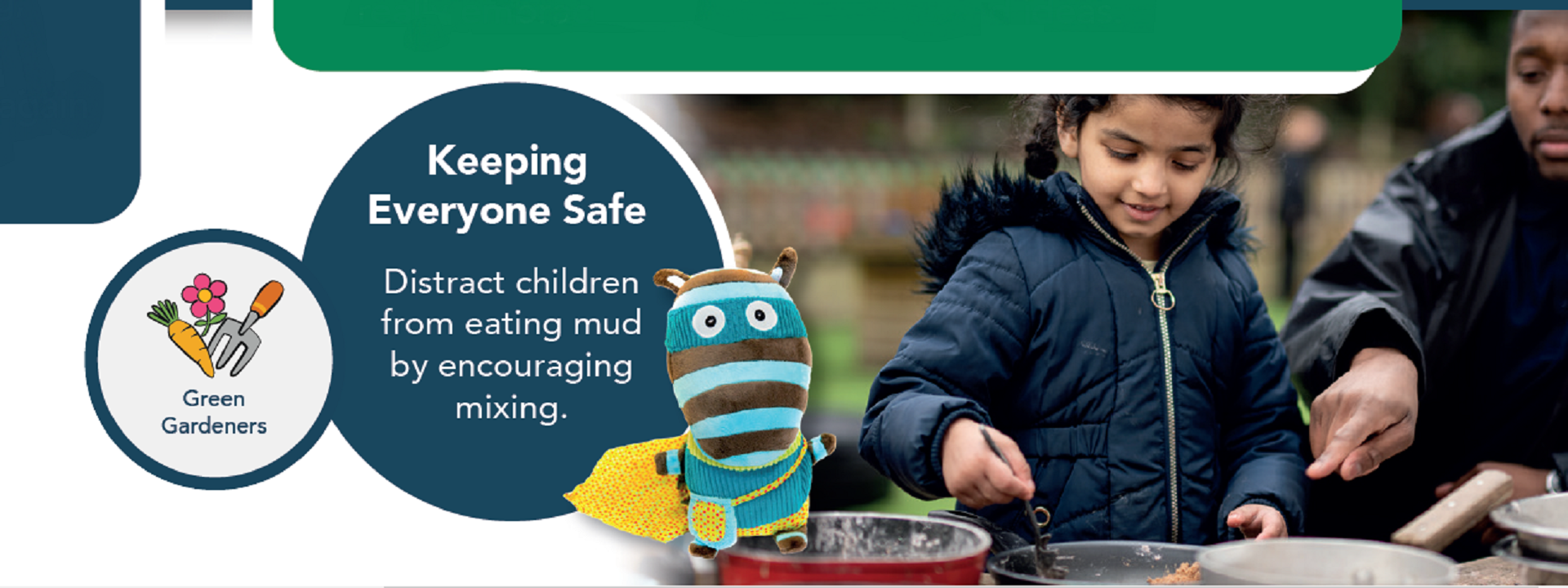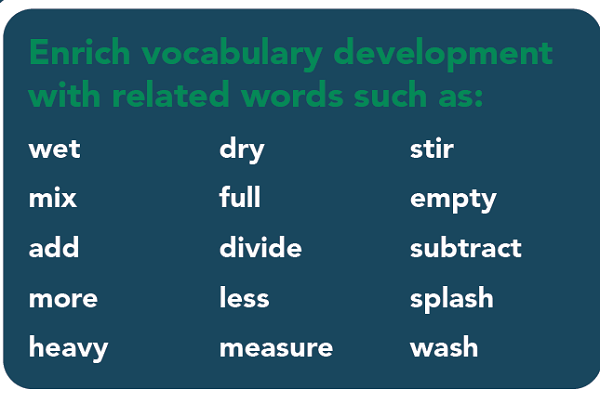Mud Kitchen

Making a Mud Kitchen
Mud is fun, and children of all ages love it! Mud play gives children a sense of freedom and engages all the senses whilst stimulating creative play. Once you give children the permission to get dirty, they won’t hesitate to make joyous memories playing in the fascinating, yet simple combination of mud and water.
Creating a mud kitchen doesn’t have to be costly or timely. For a baby or young child some mud, saucepans and water will do nicely… Mud pie anyone?
You will need:
• Utensils such as spoons, pots, pans
• Mud
• Water (it is important that the children can wash the mud away)
TOP TIP TO KEEP EVERYBODY SAFE - Creating a mud kitchen doesn’t have to be costly or timely. For a young child, some mud, saucepans and water will do nicely. Be sure to place the saucepans to the side of a sitting child rather than in front - this will help them to explore and stop them overreaching. Remember, after making all those lovely mud pies, you can have even more fun in a bubble bath getting clean again!
The Activity:
• Encourage your child to experiment and explore by using different utensils to mix mud and water together.
• Join in! Work together to create their learning space. Demonstrate to your child what can happen if you mix different amounts of water to the mud.
• Talk to your child while they are exploring - add new words by explaining what they are doing, for example mixing, banging, stirring, adding, dividing.
• Discuss the different textures and mixtures, again using a variety of new and different words.
How this supports knowledge and development:
A mud kitchen provides endless play possibilities which can create development opportunities in all areas of learning and development.
- Children will develop their fine and gross motor skills and hand-eye coordination through actions such as holding, grasping, pinching, pouring, stirring and mixing.
- It supports children’s creativity, exploration and concentration.
- Mathematical opportunities are endless – children can measure, fill buckets, cups or pots and pans, and explore capacity, adding objects and dividing up their mixture.
- Introducing new language whilst playing will help link a new word to what it means.
- Collecting natural materials will help your child to learn about nature, patterns and colours within our natural environment.
- The activity allows both you and your child time and space to focus on your senses.
EXTEND THE ACTIVITY
• Encourage your child’s creativity by asking them to find other materials outside that can be experimented with – then mixing them with the mud and water.
Examples include flowers, herbs, leaves, twigs or grass. These all make excellent decorative toppings for your mud pies!
• Water based, or powdered paint can be added to the mud to add a colourful new dimension to your child’s creations.
• For older children, stepping back and giving them space to explore independently may be necessary for them to really embrace their own thinking and ideas.
Benefits of outdoor learning:
Outdoor play is fundamental to our children’s health and wellbeing. Being outdoors and playing in a physical way improves mental development, learning and wellbeing. It can also prevent the growing issues of childhood obesity.
The great outdoors also provides children with opportunities that are just not possible indoors, the wonderful quote below really emphasises the endless possibilities the outdoors gifts to us;
“The best kept classroom and the richest cupboard are roofed only by the sky”
Margaret McMillan (c1925)






